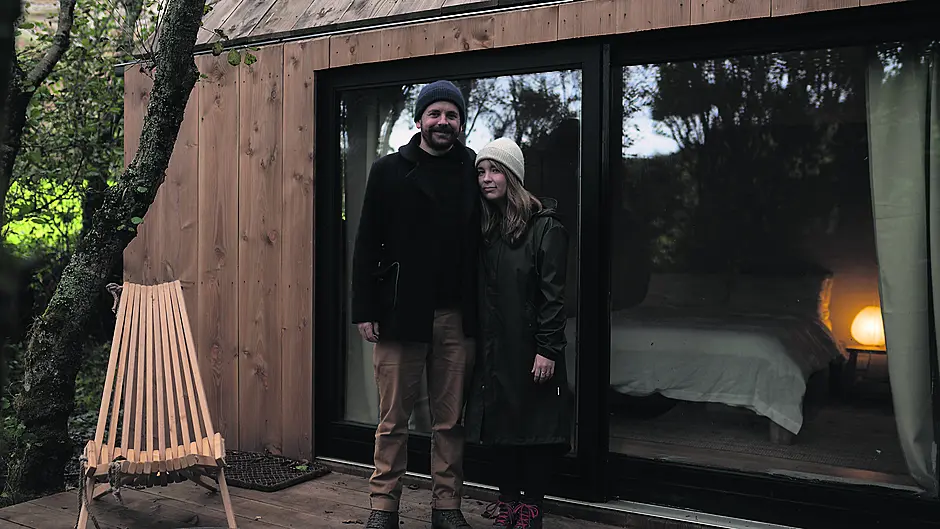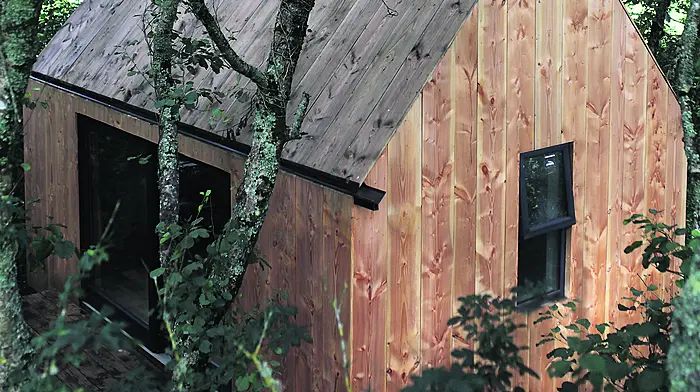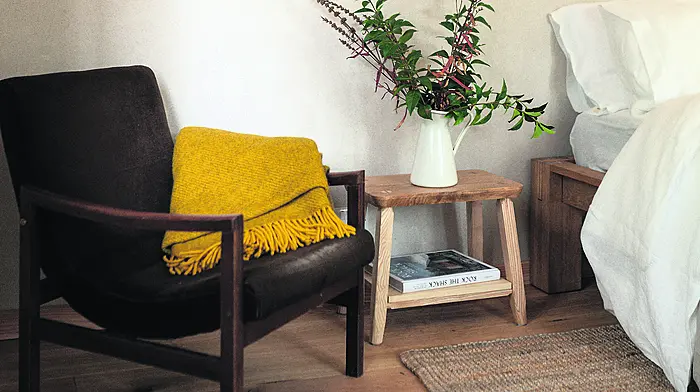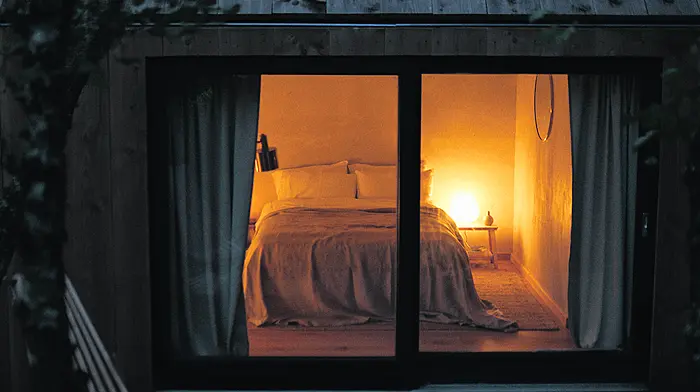A luxury cabin resort, dubbed a scout camp for hipsters, is being developed in the area. Guests will get to spend time in the wilderness where they can enjoy curated experiences based on well-being, adventure and nature
WEST Cork has been chosen by an innovative couple as the location for the country’s first sustainable native cabin resort.
Didi and Simon Ronan are giving people the chance to have an entirely luxurious and unique holiday experience, without impacting the environment.
‘We actually want guests to go beyond “doing no harm” on their holiday, and create a net positive for the environment, and leave it in a better condition than when they arrived,’ said Didi.
The couple have been working on Native Cabins for the past five years, and it’s the brainchild of their collective experiences.
Simon is a landscape architect from Wexford and has designed exciting projects around the world including the Rio Olympic village, and luxury eco resorts from the Maldives to Mallorca. Didi, who grew up in Belgium, worked for over 10 years in public policy at the UN and OECD in locations including Panama, Peru, Paraguay, Thailand and Senegal, researching how business and the economy can drive positive change for both people and planet.
Simon’s brother Des lives in West Cork and the couple have always been drawn to the area and moved from Dublin to Tragumna, pre-pandemic.
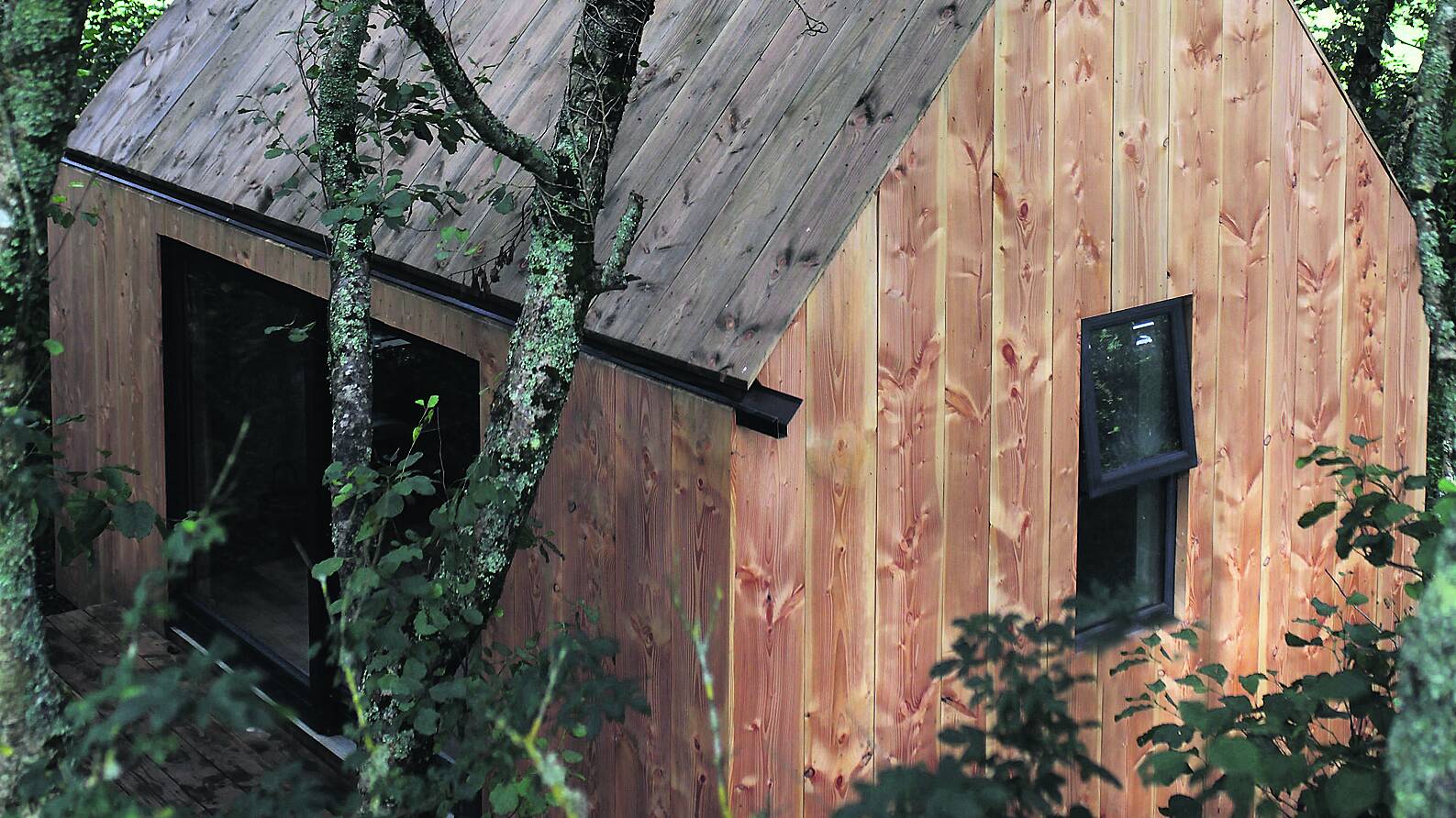
Didi jokingly says Native Cabins will be a ‘scout camp for hipsters’ and the couple have taken inspiration from the world-famous Shinta Mani Wild resort in Cambodia.
‘We’d also like to be the Patagonia of hospitality!’ she added, referring to the pioneering and world-renowned clothing brand.
Everything they do will centre around the landscape: ‘Other than people, we see the landscape as our greatest asset and the project is about protecting it, learning about it, and giving back to it.’
They’ll do that by using 20% of their profits for a rewilding project on-site, where they’ll plant native trees such as oak and larch, and bring that to the heart of guests’ experiences.
Their ethos is also to give back to the area hosting the resort, and aware of the wealth of talent in West Cork already doing incredible things, they want to collaborate with them for their captive audience.
That means working with local people delivering their programme of activities which will be centred around food, wellness and adventure.
‘We’ll have foraging and cooking with local artisan producers on site, so guests can learn about the connection between food and the landscape.
‘We’d envisage people having food trucks here and having open fire cook-ups in communal tented structures.
‘Wellness will be about sea swims, forest bathing, rewilding workshops and seaweed baths.
‘And adventure will be things like bush crafts, rafting, fire building skills, kayaking.’
The couple are going to extraordinary lengths to ensure an authentic experience at the resort.

Starting with the cabin itself, with the help of local trades and crafts people they’ve built a prototype, taking inspiration from vernacular timber architecture.
‘There’s very little examples of this type of architecture around so we looked at Viking long houses and stone cottages when deciding on the pitches and angles,’ says Didi.
‘The cabins are a carbon negative construction which means that more carbon was locked into the building, than was emitted in construction and production of all the materials.
‘This was possible because Native Cabins use all natural materials, timber milled in Kilcoe, OSB, hemp insulation, wood/wool fibre boards, and natural lime render.’
That same attention to details means they’re looking at having a sweat house in the resort – a form of rural sauna unique to Ireland, common in 18th century, and having furniture such as the traditional Súgan chair in cabins.
Didi says the reaction locally so far has been incredible with people keen to help out in any way they can.
‘Ludgate has also been invaluable in terms of mentorship and connecting us with people to generate capital investment,’ she said.
The type of people they envisage staying are probably city dwellers, or anyone looking to reconnect to nature. ‘Spending time in nature can be daunting for those not used it, so we’ll hold their hand and do that in a structured way.
‘We haven’t announced a launch date just yet and we’ve already had someone from California looking to book it out for a week!’ she said.
The couple plan to start with 12 cabins at a woodland site soon to be finalised.
‘What we’re planning will be regenerative and sustainable,’ promises Didi.
‘We’re always on the look-out for suitable woodland plots, preferably near water so if any local land owners would like to collaborate please get in touch!’


